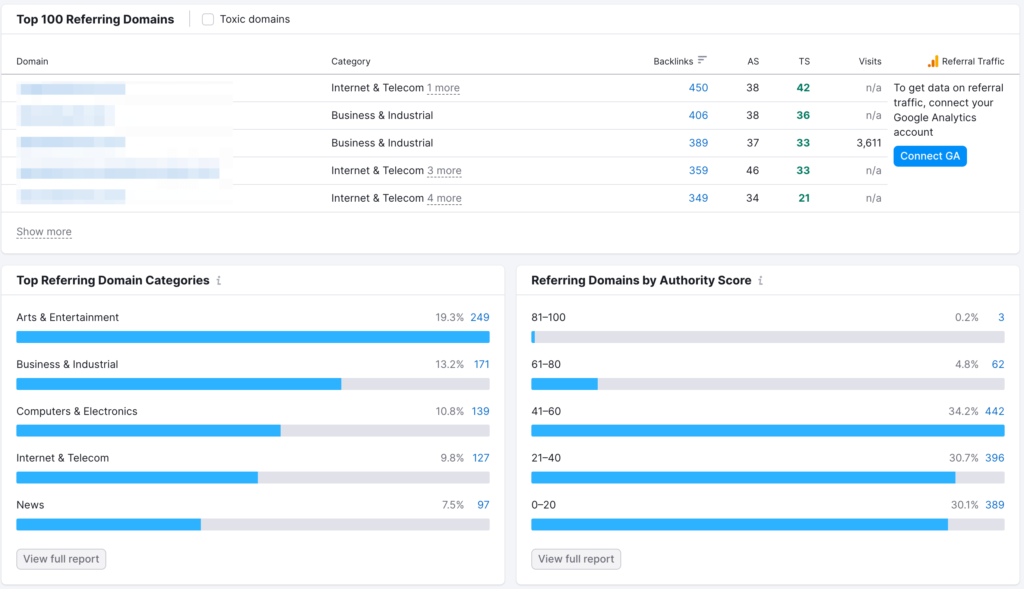
When it comes to improving your website’s search engine rankings, building a strong backlink profile is crucial. Backlinks are a signal of trust and authority in the eyes of search engines, and they can greatly influence your website’s visibility in search results. However, not all backlinks are created equal, and it’s essential to focus on acquiring relevant backlinks to see the most significant impact on your rankings.
In this guide, we’ll dive deep into the power of niche-relevant backlinks and how they can benefit your website’s SEO. We’ll explore how to determine link relevance, the different methods for acquiring relevant links, and tips for maximizing the effectiveness of your link-building efforts. By the end of this guide, you’ll have a thorough understanding of niche-relevant backlinks and how to leverage them to improve your website’s search engine rankings.
What Are Niche Relevant Backlinks?
Niche relevant backlinks are links from websites that are closely related to your website’s topic or industry. For example, if you have a website that sells pet products, a niche relevant link would come from a website that also focuses on pets, such as a pet care blog or an animal welfare organization. These types of backlinks are highly valuable because they provide context and relevance to your website, signaling to search engines that your website is an authoritative source in your industry.
Niche relevant backlinks are also essential because they help to drive targeted traffic to your website. If your website is featured on a pet care blog, for example, people who are interested in pets are more likely to click through to your website, leading to higher engagement and potentially more sales. And our SEO company is happy to provide you with the professional assistance in working with niche backlinks for your business.
How Important is Link Relevance?
Link relevance is an essential factor in search engine rankings. When search engines like Google evaluate the quality of your backlinks, they consider not only the number of links but also the relevance of the linking website to your website’s topic or industry.
Therefore, it’s also essential to consider Google search relevance. Google evaluates the relevance of a linking website not only based on the topic but also on the content and intent of the website. A link from a website that provides valuable and relevant content to your target audience is more likely to be considered a high-quality backlink by Google.
For example, if you have a website that sells sporting goods, a backlink from a website that focuses on fashion would be less valuable than a backlink from a sports news website. This is because the sports news website is more closely related to your website’s topic and therefore provides more relevance and authority to your website.
Therefore, when evaluating the relevance of a linking website, it’s important to consider both the topic and the content of the website to ensure that it aligns with your website’s topic and provides value to your audience. Learn more about relevance in SEO.
How to Check for Link Relevance?
To ensure that you’re acquiring high-quality niche relevant backlinks, it’s essential to evaluate the relevance of the linking website. You can use a variety of tools to check for link relevance. These tools allow you to analyze a website’s backlink profile, keyword relevance, and other metrics to determine if it’s a suitable source for niche related backlinks:
Ahrefs
- • Ahrefs Site Explorer: This tool allows you to analyze a website’s backlink profile, see its referring domains, and evaluate the relevance of the linking domains to your website’s topic.
- • Ahrefs Keyword Explorer: This tool allows you to find keyword opportunities and check the relevance of a website’s content to your target keywords.
- • Ahrefs Content Explorer: This tool helps you find relevant content and identify websites that publish similar content.
- • Ahrefs Competitor Research: This tool allows you to analyze your competitor’s relevant link profile and identify potential link opportunities from relevant websites.
- Majestic
-
- • Majestic Backlink Checker: This tool provides detailed information about a website’s backlink profile and helps you evaluate the relevance of the linking domains. It uses metrics such as Trust Flow and Citation Flow, which allow you to evaluate the trust of resources and detect toxic backlinks in your profile.
- • Majestic Site Explorer: This tool provides an overview of a website’s link profile, including the number of backlinks, referring domains, and other metrics.
- SEMRush
-
- • SEMRush Keyword Research: This tool helps you find keywords relevant to your industry and check the relevance of a website’s content to your target keywords.
- • SEMRush Backlink Analytics: This tool allows you to make a website’s backlink profile audit and identify potential link opportunities from relevant websites.
- • SEMRush Topic Research: This tool helps you find popular topics related to your industry and identify websites that publish similar content.
-

- Moz Pro
-
- • Moz Pro Keyword Research: This tool helps you find relevant keywords and evaluate the relevance of a website’s content to your target keywords.
- • Moz Pro Backlink Checker: This tool provides detailed information about a website’s backlink profile and helps you evaluate the relevance of the linking domains.
- Serpstat
-
- • Serpstat Backlink Checker: This tool allows you to analyze a website’s backlink profile and identify potential link opportunities from relevant websites.
- • Serpstat Keyword Research: This tool helps you find keywords relevant to your industry and check the relevance of a website’s content to your target keywords.
- • Serpstat Competitor Research: This tool allows you to analyze competitors’ backlinks and identify potential link opportunities from relevant websites.
- By using these tools, you can evaluate the relevance of a website and ensure that you’re acquiring high-quality niche relevant backlinks for your website.
-
How to Get Niche Relevant Backlinks?
- Now that we’ve established the importance of niche relevance in backlinks, let’s take a look at some effective link building strategies for acquiring them:
-
Resource Link Building
- Resource link building involves creating high-quality, informative content and then reaching out to websites that are likely to link to it. For example, if you publish a comprehensive guide on a particular topic, you could reach out to other websites that cover related topics and suggest that they link to your guide as a valuable resource.
-
HARO Link Building
- Help a Reporter Out (HARO) is a platform that connects journalists with sources for their stories. By signing up as a source in your niche, you can receive requests from journalists who are looking for quotes or insights on a particular topic. If you provide a valuable response, the journalist may include a link to your website in their article.
-
Link Insertion
- Link insertion involves identifying existing content that could be improved by adding a link to your website. For example, if you come across a blog post that mentions a topic related to your niche but doesn’t provide a link to a relevant resource, you could reach out to the author and suggest adding a link to your website as a valuable addition to the post.
-
Guest Posting
- Guest posting involves writing content for another website in your niche and including guest post links to your website in the author bio or within the content. This not only provides a valuable backlink but also allows you to showcase your expertise and reach a new audience.
-
Competitor Backlink Analysis
- By analyzing the backlink profiles of your competitors, you can identify websites that are likely to be interested in linking to your content as well. This involves using tools like Ahrefs, Moz Pro, or Serpstat to see where your competitors are getting their backlinks from and then reaching out to those websites to pitch your content.
-
Tiered Link Building
- Tiered link building is an SEO strategy that aims to improve a website’s position in search results by building a layered network of inbound links. It involves the creation of several levels of links at once, where each level of links refers to the previous one, and the site itself occupies the top of this pyramid. Such a strategy will help increase the credibility of the site in the eyes of search engines, which will positively affect its position.
-
Podcast Link Building
- Podcast link building involves reaching out to podcast hosts in your niche and suggesting yourself as a guest on their show. During the podcast, you can provide valuable insights and include a link to your website in the show notes or during the conversation.
-
Broken Link Building
- Broken link building involves identifying broken links on other websites and suggesting your own content as a replacement. This not only provides a valuable backlink but also helps the website owner fix their broken link and improve their website’s user experience.These are just a few strategies for acquiring niche relevant backlinks. Depending on your niche and target audience, some backlinks strategies may be more effective than others. The importance of backlinks is undeniable and the key is to be creative and persistent in your relevant link building efforts.

-
7 Tips for Getting the Best Niche Relevant Backlinks
- Acquiring niche relevant backlinks can be a game-changer for your website’s SEO performance. But how do you ensure that you’re getting the best ones? Here are 7 tips to help you do just that:
-
1. Finding Niche-Relevant Websites Using Keywords
- The first step to getting niche relevant backlinks is to find websites that are relevant to your niche. You can do this by searching for keywords related to your business or industry on search engines or using tools like Ahrefs, SEMrush, and Serpstat. These tools can help you find websites that are ranking for the same keywords as you and are therefore likely to be interested in your content.
-
2. Establishing the Minimum Organic Traffic Threshold
- Before reaching out to websites for backlinks, it’s important to ensure they have a decent amount of organic traffic. This will ensure that your backlink is seen by a significant number of people and has a higher chance of generating traffic to your website. You can use tools like Ahrefs and SEMrush to check a website’s organic traffic.
-
3. Prioritizing Geo-Relevant Backlinks for Local Businesses
- If you have a local business, it’s important to focus on getting backlinks from websites that are relevant to your local link building. For example, if you have a coffee shop in New York, getting a backlink from a website that covers the New York food scene can be more beneficial than getting a backlink from a website that covers coffee shops in general.
-
4. Managing Anchor Text Ratios Effectively
- When acquiring backlinks, it’s important to pay attention to the anchor text used in the link. Google considers anchor text as a signal of the content of the page being linked to. It’s important to have a diverse range of anchor texts and avoid over-optimization. You can use Google Search Console to monitor your anchor text ratio.
-
5. Emphasizing Website Authority in Link Building
- When acquiring backlinks, it’s important to focus on websites that have high domain authority. These websites are more likely to pass on their authority to your website, which can help improve your search engine rankings. You can use tools like Ahrefs and Moz Pro to check a website’s domain authority.
-
6. Negotiating for Dofollow Backlinks
- When reaching out to websites for backlinks, it’s important to ask for a dofollow backlink. A dofollow backlink passes on link juice to your website, which can help improve your search engine rankings. However, it’s important to note that Google’s Quality Guidelines discourage the use of paid or exchanged links.
-
7. Passive Link Attraction Strategies
- Finally, it’s important to attract links passively by creating high-quality content that people want to link to. This can include creating infographics, writing detailed guides, and conducting original research. The more valuable your content is, the more likely it is to be linked to other websites.
-
Final thoughts
- Niche relevant backlinks are essential for achieving higher rankings on search engine result pages. By using the tips and techniques we’ve outlined in this guide, you can acquire high-quality, niche-relevant backlinks that will help your website rank higher.At Mellow Promo, we specialize in providing link building services to businesses of all sizes. Our team of experts can help you create a customized link building strategy that’s tailored to your specific needs and goals. We use ethical, white-hat techniques to acquire high-quality backlinks that will help you achieve long-term success.If you’re ready to take your website to the next level, contact us today to learn more about our link building services.





